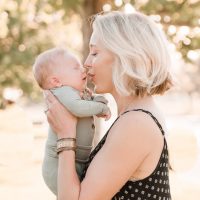Bones.
That’s what I’m thinking about, lying motionless on the ground, in the aptly named corpse-pose at the end of a yoga class. I’m thinking about my bones, and the spaces between them, and the eventuality that one day they will stay this way, motionless, forever.
I’m thinking about being dead.
It’s a freeing thing, once you get past the grimness of it—which is to say, once you get past being afraid of the unavoidable.
The truth is, we’re all dying. We’re all dying right now. These bones, this skin, these muscles, and this brain, all slowly deteriorating while we make plans and try to feel important.
This is a technique endorsed by Buddhist teachers in order to bring more perspective about life, about time, and about our place in the grand scheme of things.
In the words of Thich Nhat Hanh, from The Miracle of Mindfulness: “Imagine that all your flesh has decomposed and is gone, that your skeleton is now lying in the earth 80 years after burial. See clearly the bones of your head, back, your ribs, your hip bones, leg and arm bones, finger bones…See that your skeleton is not you…”
This odd, morbid practice really does it for me. Maybe more than any other breathing exercise or guided meditation or self-help book. Picturing what’s coming for me—what’s coming for us all—never fails to put everything in its right place. Strings of e-mails, tedious meetings, office politics, pretense, ego. The commonplace frustrations that come with My Important Adult Life.
None of it matters, really. Or at least, it won’t when we’re all dead.
This skeleton is not me. My body is not me. The entire identity I’ve built around myself—my job, my hobbies, my social media profile, my outfits, the nice things I think about myself, and the not-so-nice things I think about myself—none of these things are “me.” All of these things are just temporary.
It is quite liberating.
I have an 11-month-old son who is just now toddling his first trepidatious steps. He grips a chair for balance, then ventures out. Step, step, fall, crawl. Then he does it again. And again.
I look at him and ponder his little, unsteady body. It is a body that is already growing older. A body that is already becoming a teenager, and an adult, and an old man.
Is this little body my son?
No, certainly not.
My son is the fearless, exuberant being who has the courage to walk for the very first time. My son is energy and excitement and slobbery kisses at the end of the day.
My son, the real him, is an uncontainable force, who may someday—if I do my job right—also realize that this is all temporary and live accordingly: liberated.












Read 4 comments and reply